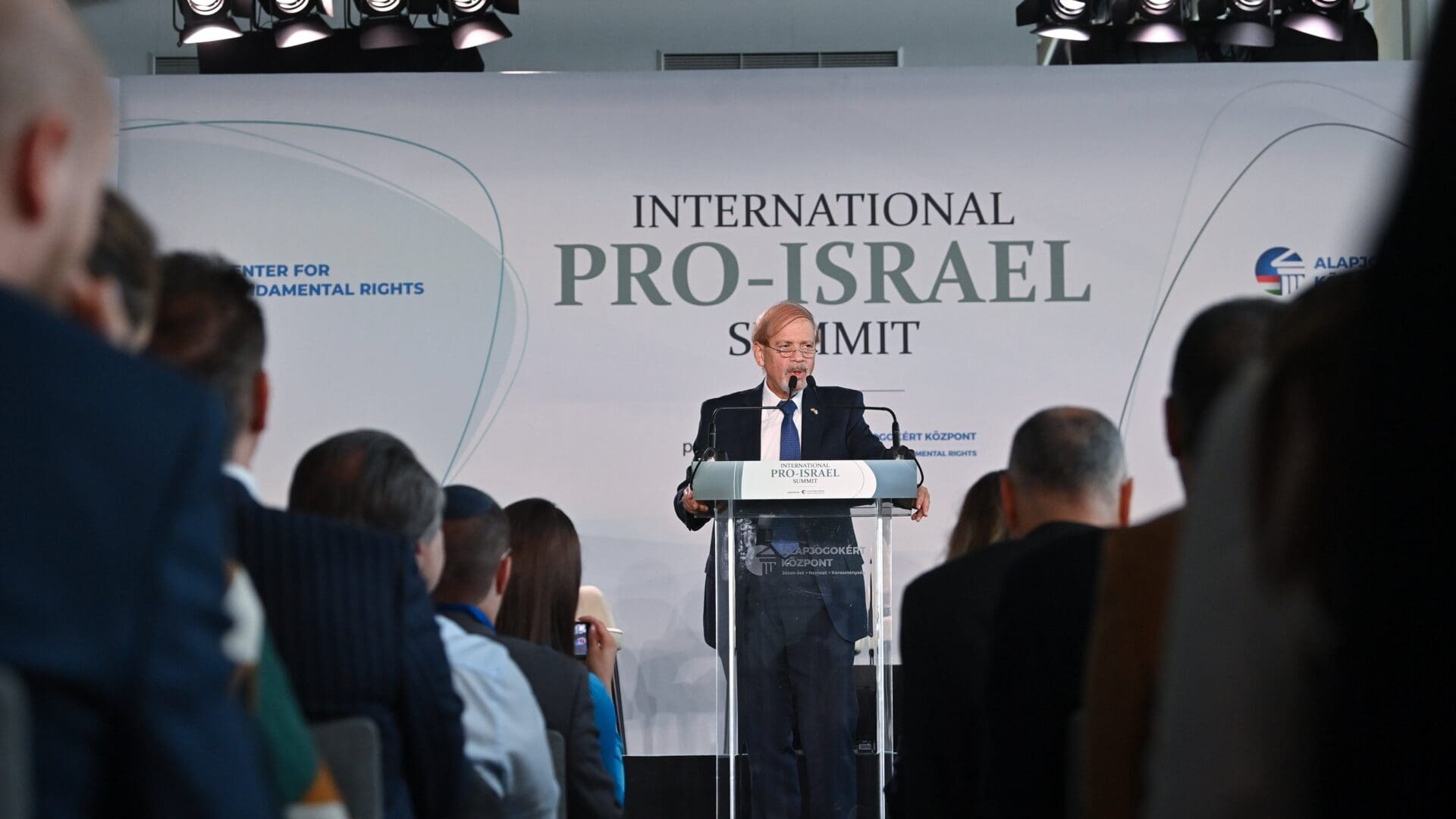As anti-Israel pressure mounts in the world, Hungary remains one of the last stalwart supporters of Israel. This is a source of pride for Hungarian conservatives, as well as a magnet for further attacks in the international arena against Hungary and its conservative no-nonsense leadership. What are the reasons for Hungary’s strong support of Israel and what is the Hungarian position regarding the Middle East conflict?
As Hungarian Conservative has already reported, at the end of June, a conference was scheduled by the outgoing High Representative of the European Union for Foreign Affairs and Security Policy Josep Borrell, in which he planned to pass resolutions condemning Israel’s actions in its war against Hamas in Gaza. However, due to diplomatic efforts, the conference was delayed and will only be held when Borrell leaves office. The diplomatic efforts that led to the postponement of the conference involved Israeli Foreign Minister Yisrael Katz appealing to his Hungarian counterpart, Péter Szijjártó, as well as the foreign ministers of some other countries, who were asked to support delaying the conference until the newly elected EU officials take office after 1 July.
This was not the first time that Hungary stood up for Israel on the international level and will probably not be the last time that Hungary came to the aid to the Jewish state.
Hungary regularly abstains from UN condemnations of the Jewish state
and Hungary’s leading politicians—such as Foreign Minister Szijjártó and PM Viktor Orbán himself— regularly affirm Israel’s right to protect itself.
The situation is not different in the EU either, where Hungary has stopped several anti-Israel legislative proposals and keeps on stopping anything that holds double standards again the Jewish state. Hungary has gone so far in its friendship with Israel as to being to the idea of moving its embassy to Jerusalem at some point. Hungary already maintains a trade mission in Jerusalem, but as Balázs Orbán, the prime minister’s political director, made clear last year, ‘if Israel requests it, Hungary will consider moving its embassy to Jerusalem’.
And while antisemitism is on a continuous rise throughout Western Europe and it has reached alarming levels in the United States, Hungarian Jewry, which still constitutes the third largest community in mainland Europe, enjoys a secure existence. The past weeks and months have seen a brutal upsurge of antisemitism in Western Europe, Northern Europe and North America, but also in Asia and other countries of the Middle East.
Meanwhile,
in Hungary, pro-Hamas demonstrations have been banned, and the Jewish community remains safe;
there have been no assassinations, no street attacks, or if there have been, it turns out that it was tourists from Arab countries, not Hungarians, who attacked Israeli tourists.
This does not mean that Hungary subscribes to a kind of unthinking neoliberal foreign policy, or that it simply copies what America is doing. To understand Hungary’s thinking, we need to keep in mind the key word in Hungarian politics and foreign policy today: sovereignty. Related to this are concepts such as connectivity, which Balázs Orbán is fond of quoting.
Hungary’s starting point, from a historian’s perspective, is obviously the following: Hungary is a small country, relatively poor within the European Union (the latter, of course, as I indicated, is relative: the majority of the Hungarian population, for example, are homeowners, which is outstanding compared to some Western countries, but that is not the point here).
Hungary can only lead the continent as a positive example of common sense, but it cannot be a leading power. While it is the tragedy of the Poles, for example, that although theirs is not a small country, they cannot be a great power, Hungary does not have to face such a deceptive choice: we are small, and we are rowing in the sea of great politics fully aware of that.
Hungary’s government, contrary to what is often said, is not clearly left or right. In economic policy, for example, it is strongly in favour of state intervention and redistribution, but the focus is not on the poor and the backward social groups, but on families. Thus, it is possible that in Hungary an upper-class white Christian family with a million euros could be entitled to social benefits.
Another important element of Viktor Orbán’s governance is that he knows Hungarian history and has learned from its mistakes. He does not want to repeat the sins committed by the historic Hungarian state during the 20th century. Hungary’s vision has thus not been blinded by the anti-Zionism of woke ideology, and it is able to recognize that Israel is the bastion of democracy and human rights in the Middle East, while successfully holding on to its religious and national traditions.
Hungary’s role, therefore, is
to be a sensible mediator role between the various world powers that are slowly sliding into a new Cold War,
to seek trade and security relations in the interests of the Hungarian people, while providing stable support for Israel’s existence and accepting and respecting its right to self-defence. In addition, Hungary is vigilant to ensure that the rights of the ‘gifts of God’ (as Viktor Orbán once called the Jewish people) in Hungary are not in any way diminished.
Naturally, in today’s ideologically structured Western world, this brings criticism to the Hungarian government. Such criticisms do not usually interest the Hungarian government, but rather make it even more determined to defend its current position. In a rapidly changing foreign policy context, one thing seems certain to the historian: the Hungarian government is a stable partner for Israel within the EU.







